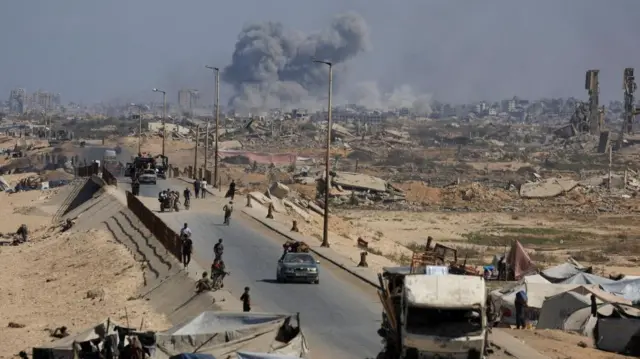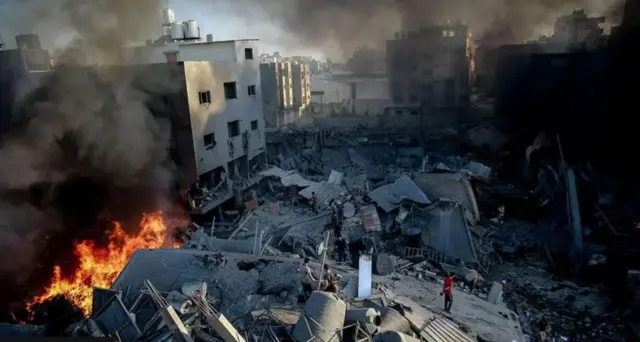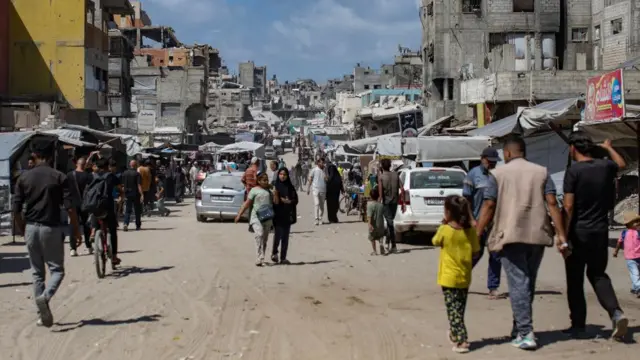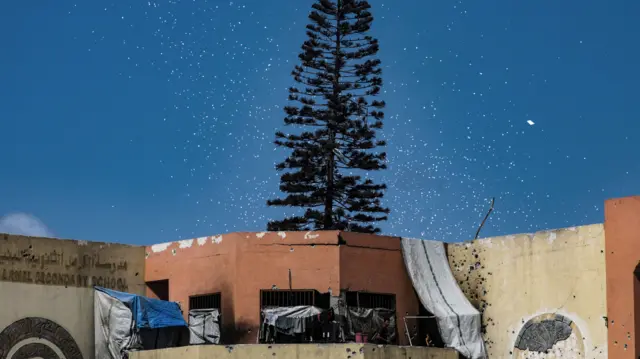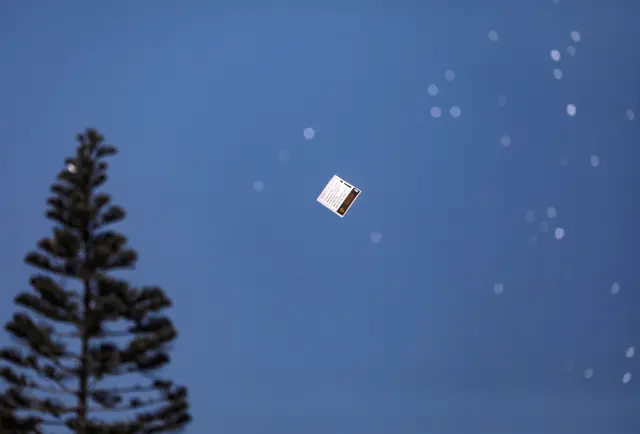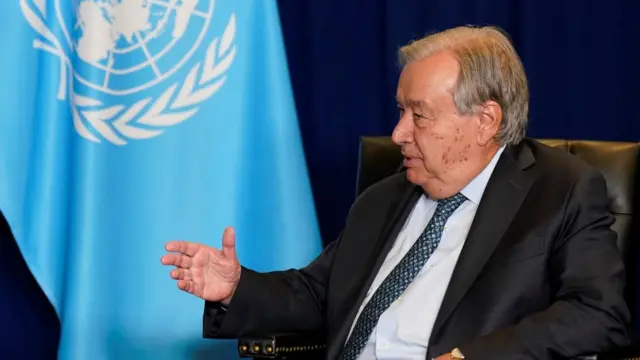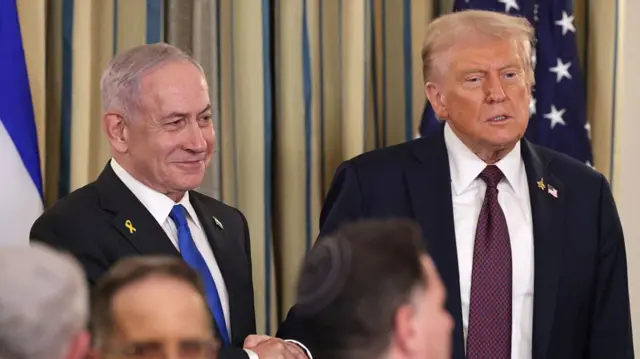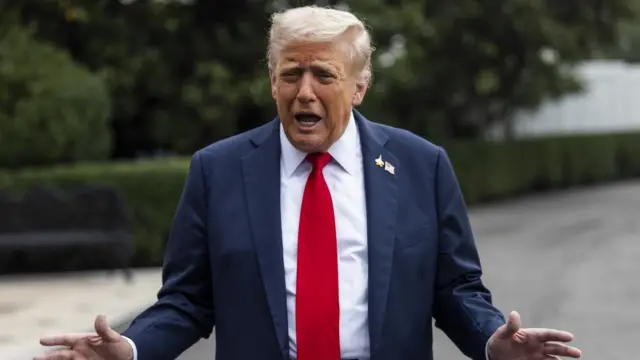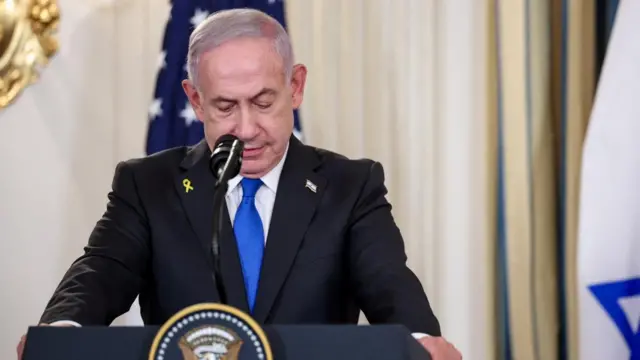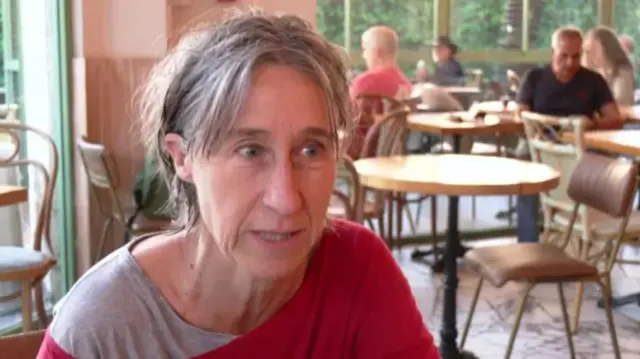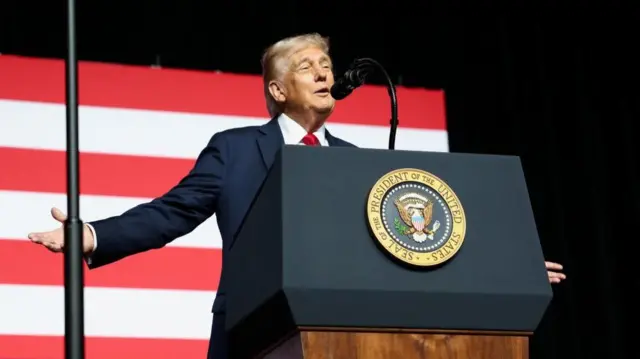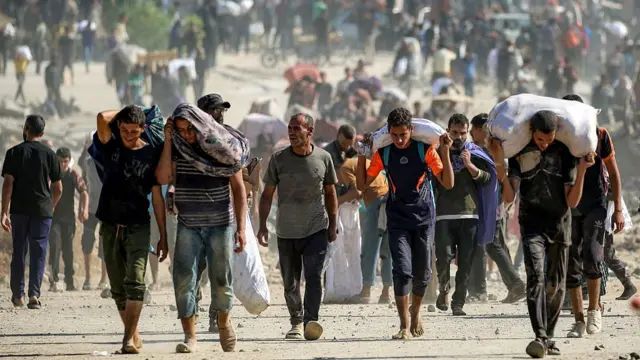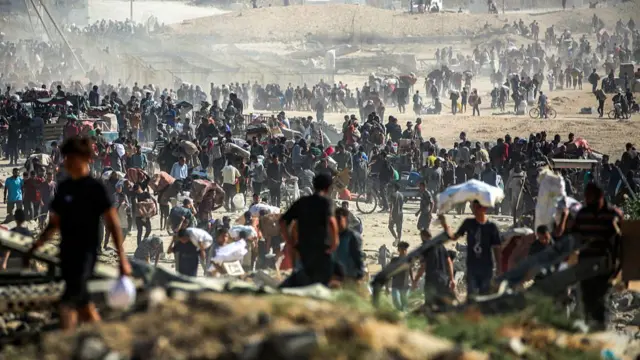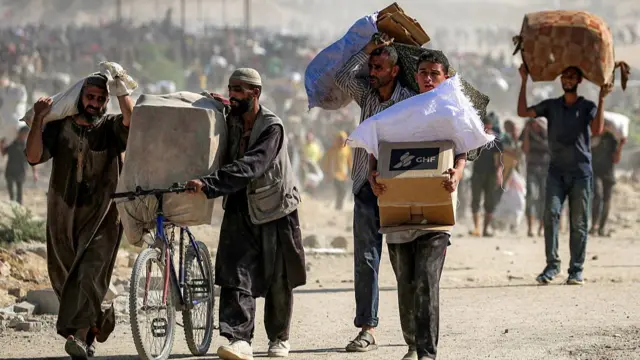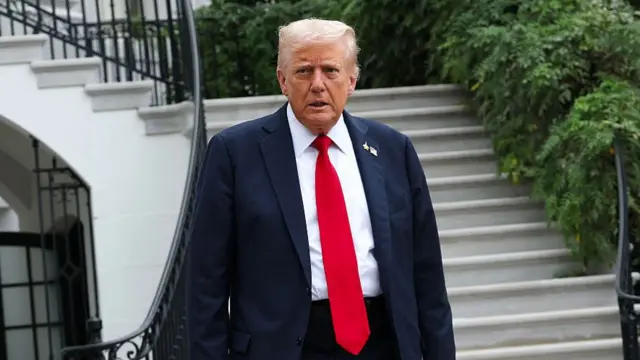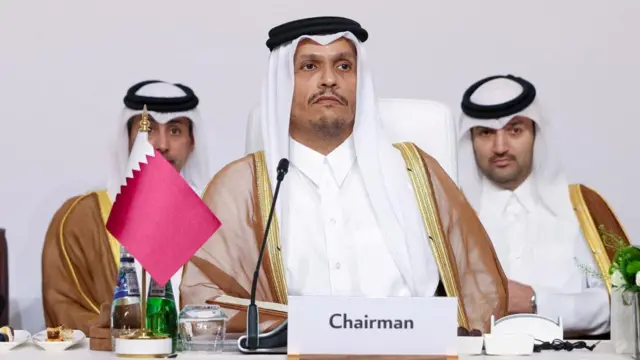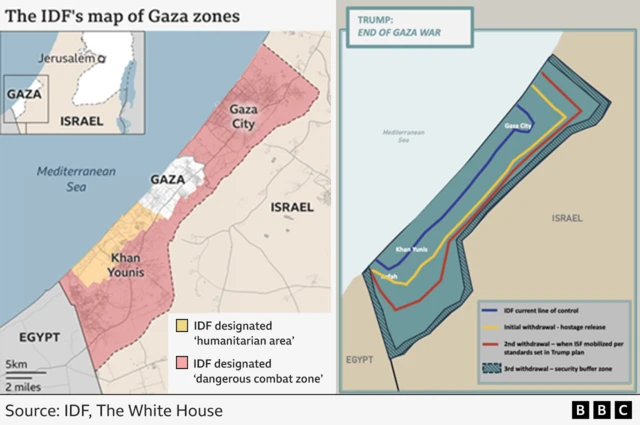
Trump's plan has momentum, but its ambiguity is not a promising startpublished at 18:00 BST 30 September
 Jeremy Bowen
Jeremy Bowen
International Editor
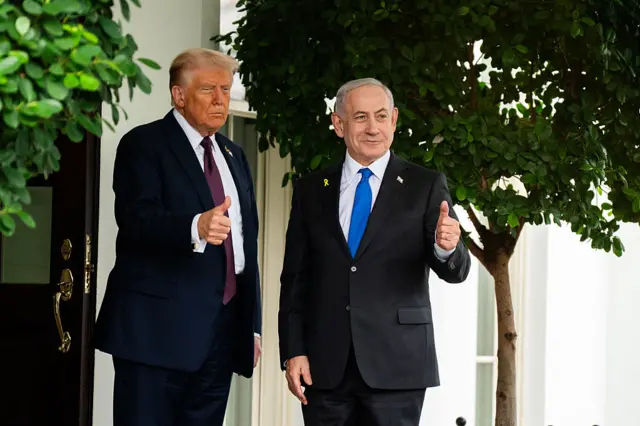 Image source, Getty Images
Image source, Getty ImagesDonald Trump's framework agreement for ending the Gaza war and reconstructing the devastated territory has momentum behind it.
Much of it comes from the president himself. Momentum comes too from leading Arab and Islamic countries who have supported the plan, including Jordan, Egypt, Qatar, Saudi Arabia, the UAE, Pakistan, Indonesia and Turkey.
And Israel's Prime Minister Benjamin Netanyahu, standing next to Donald Trump, accepted it too, despite the fact it contains talk of a pathway to a Palestinian state that he has repeatedly denounced.
To keep the pace up, Trump says that Hamas has "three to four days" to decide whether to say yes or no. If the answer is no, the war goes on.
Momentum is the plan's strength. Its weakness is the lack of detail, a characteristic of Trumpian diplomacy.
If it is to work, hard negotiation will be necessary. In that process there will be many opportunities for it to break down.
It may not be possible to end a deep-seated conflict that has lasted more than a century. Longer term, the UK and many countries outside Israel and the US believe that any attempted solution that does not lead to Palestinian independence will not bring peace.
Netanyahu believes the deal takes him closer to Israel's elusive victory over Hamas. He denies any Palestinian right to the land between the river Jordan and the sea.
One plan, two very different versions of what it means. The framework is ambiguous enough for both interpretations to be possible.
That is not a promising start.
We're now ending our live coverage, you can read Jeremy's story in full on our website.

